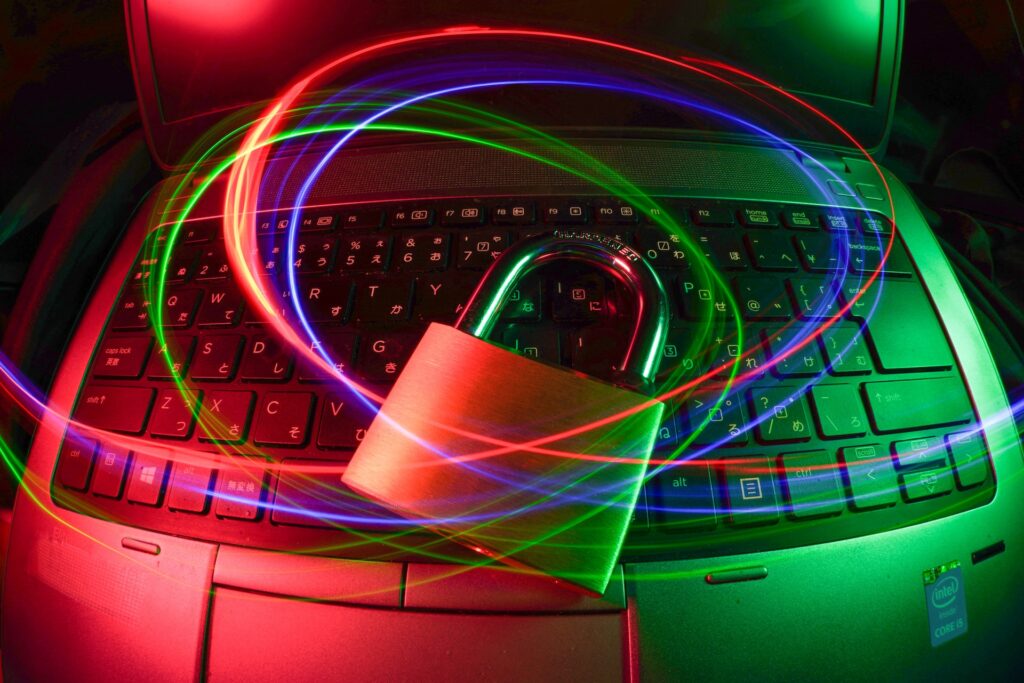A Guide to Records Management for Landlords

As a landlord or property manager, maintaining accurate and organized records is crucial for the smooth operation of your rental business. Managing utility bills, tracking payments, and keeping tenant information up-to-date can quickly become overwhelming without a reliable system. Adopting effective record management practices not only simplifies your workload but also helps you stay compliant and prepared for any potential issues.
This guide will introduce you to proven methods for improving your records management. You’ll discover the essential documents you need, strategies to store and secure your files, and practical tips on digital record keeping for long-term success. By mastering these skills, you can enhance your rental management and protect your investment.
Key Takeaways
- Good record management streamlines your rental operations.
- Secure and organized documentation benefits landlords and property managers.
- Digital record keeping helps safeguard your records for the future.
Best Practices for Record Management
Effective record management is central to maintaining organization in rental property management. Start by setting up both physical and digital document management systems—using cloud backups or secure USB storage helps ensure your files are safe from loss or damage. Establish regular backup routines so that you always have current records available.
Accurate record-keeping practices are essential. Track tenant payments, leases, and maintenance requests with careful attention to detail. Utilize checklists at move-in and move-out to ensure property condition is properly documented. Maintain a table such as the one below for organization:
| Document Type | Storage Format | Frequency to Update | Accessible To |
|---|---|---|---|
| Lease Agreements | Digital/Paper | On change | Owner/Manager |
| Payment Records | Digital | Monthly | Owner/Manager |
| Utility Bills | Digital | Monthly | Owner/Manager |
| Maintenance Logs | Digital | As needed | Owner/Manager |
Limit access to sensitive information only to necessary parties to protect tenant privacy. Conduct periodic reviews to ensure all files are complete, up-to-date, and compliant with regulations. Following these practices helps you remain in control, lower the risk of legal issues, and more easily identify ways to improve tenant retention rates.
Identifying Essential Records and Documentation
What Documents Should Landlords Keep On File?
Staying compliant with legal requirements and ensuring smooth property management depends on maintaining a thorough and orderly documentation system. You should retain a broad array of essential records:
- Lease agreements: Signed lease or rental agreements, including all amendments and addenda.
- Rental applications: Completed applications used in the tenant screening process.
- Tenant files: Documentation of communication, maintenance requests, and inspection records.
- Rent payment records: Bank statements, payment receipts, and rent receipts for every month.
- Security deposit records: Detailed documentation about deposits held, deductions, and return transactions.
- Maintenance and repair records: Maintenance logs, invoices, and maintenance requests.
- Expense records: Receipts, invoices, and expense reports related to deductible expenses, property maintenance, and repairs.
- Tax documents: Tax records, filings, records supporting tax deductions, Schedule E forms, and property tax records.
- Insurance policies: Insurance documents, claims, and proof of coverage.
- Property files: Owner files, property deeds, inspection reports, management agreements, and management fee payment records.
A table can help categorize documents:
| Category | Examples |
|---|---|
| Lease Terms/Agreements | Lease agreement, amendments, addenda |
| Tenant Documentation | Application, screening records, communication logs |
| Financial Records | Rent payments, payment receipts, bank/expense records |
| Security Deposit | Deposit records, deduction statements, return records |
| Property Management | Inspection records, maintenance logs, contractor invoices |
| Compliance/Tax | Tax filings, Schedule E, insurance documents, licenses |
Keeping these records organized will help you respond to tenant disputes, handle tax season smoothly, and prove compliance with regulations. Failure to keep essential records can create issues with tax regulations, deductible expenses, and legal proceedings. For more on critical documents to retain, see this guide on rental documents for landlords.
How To Keep Track of All Documents Effectively
Establishing an intuitive and reliable recordkeeping system is vital. Begin by setting up separate folders or digital containers for each property and each tenant as well as general files like insurance policies and management agreements. Creating digital backups is a best practice—scan all physical documents, save them securely, and update your files as changes occur.
You may want to use methods such as:
- Color-coded binders: Assign a color to each property or document type, with clear labels and tabs.
- Physical filing cabinets: Organize by date, property, or document type for quick retrieval.
- Cloud storage solutions: Use services like Google Drive or Dropbox to maintain accessible, remote backups that can be shared with authorized helpers or legal counsel if needed.
Best practices include routine audits of your files, keeping a log of access to sensitive information, and following privacy guidelines. Digital storage makes it easier to recover records lost due to physical damage and supports compliance with landlord/tenant law changes over time.
For day-to-day operations, consider keeping a checklist or table of required documents and their last updated date to avoid missing crucial updates or filings. Using systematic, secure, and regularly updated storage ensures you remain prepared for audits, tax purposes, and tenant or legal requests, helping you maintain efficiency and reduce the risks connected to lost documentation.
Keeping Records Organized and Secure

Establishing an Efficient Filing System
A well-structured filing system forms the foundation of efficient rental property management. Begin by creating separate folders or containers for each tenant, unit, or property. Label all folders, binders, and filing cabinets clearly—this aids quick document retrieval and reduces the risk of misplacing important records such as tenant information, credit reports, screening reports, and eviction paperwork.
Make use of both physical and digital methods. Use color-coded binders with tabs for paper records, and filing cabinets with multiple drawers sorted by date, keyword, or document type. Your folders should contain lease agreements, communication logs, complaints, maintenance requests, vendor contracts, move-in and move-out checklists, documentation on lease violations, and records of security deposits.
Consider making digital backups of all essential documents—scanning your files to PDFs or other formats ensures you have immediate access in a legal dispute, audit, or an IRS audit. Organizing your records and retaining all necessary information helps you meet legal compliance, safeguard against lawsuits, and quickly respond to tenant relations or non-compliance issues.
Grouping records in this way supports strong legal protection by keeping all necessary documentation at hand if faced with litigation or an audit. The table below gives a basic example of a filing system layout:
| Folder Name | Documents Included | Type |
|---|---|---|
| [Tenant Name] | Lease, payment history, screening, repairs | Individual |
| Property Logs | Vendor contracts, inspection checklists | Generic |
| Legal Disputes | Communication logs, complaints, lawsuits | Legal |
| Financials | Rent receipts, deposit logs, tax records | Financial |
Utilizing the Right Tools To Maintain Records Securely
Maintaining secure storage for your rental property records is critical to protecting tenant privacy and your business interests. Secure filing cabinets with locks provide physical security for paper records, while password-protected cloud storage platforms (like Google Drive or Dropbox) deliver a reliable digital backup and enable access from any location.
Leverage document management software to streamline organization and retrieval. Such tools offer encryption, password protection, and advanced search capabilities, reducing unauthorized access and minimizing the risk of data loss due to hardware failures. Features like audit trails can track changes to documents, proving useful in handling legal disputes or litigation.
For enhanced organization, use features like automated retention settings, ensuring you meet retention requirements for IRS audits and legal compliance. Digitally storing communication logs, tenant information, and eviction paperwork provides security and simplifies retrieval during disputes or when verifying information with tenants, law enforcement, or the courts.
A mix of digital and physical tools—like color-coded binders, encrypted cloud drives, and specialized software—supports robust recordkeeping. This helps minimize the risk of non-compliance, missing documents, or exposure during an audit or legal examination. For practical guidance on modern digital methods and secure file management, see this guide to records management for landlords.
Tips for Digital Record Keeping and Backup Storage

Advantages of Digital Record Keeping
Adopting digital record keeping makes managing rental property documents simpler and more efficient. With electronic records, you gain faster organization and can retrieve data from anywhere with an internet connection. Features like keyword search let you find tenant files, maintenance records, or financial transactions in seconds.
Benefits overview:
| Feature | Benefit for Landlords |
|---|---|
| Real-time access | Manage records remotely with property management software or cloud storage |
| Enhanced security | Digital solutions often use encryption and require user authentication |
| Improved organization | Categorize files by date, tenant, or property with folders or spreadsheets |
| Efficient retrieval | Quickly search and filter documents using search tools |
Using cloud storage and property management software also reduces the clutter and risk related to storing paper documents. Many digital systems sync with personal finance and small business accounting software, streamlining expense tracking and financial organization.
Appropriate Methods for Backing Up Data Safely
Backing up your digital data is essential to avoid data loss due to hardware failure, accidental deletion, or cyber threats.
Reliable backup strategies include:
- Cloud-Based Storage: Use encrypted cloud backups such as Google Drive, Dropbox, or iCloud for easy access and redundancy. Many property management software platforms integrate with cloud storage options, enabling automatic backup.
- External Devices: Regularly copy your electronic records onto USB drives or external hard drives. Physically disconnecting the device after each backup adds another layer of protection.
- Automated Backups: Configure your chosen system or app to perform scheduled automatic backups. This reduces the risk of forgetting and ensures your information is always up to date.
Maintain separate folders for each property and organize photos, leases, and financial records clearly. Creating structured folder systems in your cloud storage helps ensure nothing is misplaced or accidentally deleted.
For best results, use a combination of cloud backups, external drives, and secure, regularly scheduled automation. Consistent practices will keep your digital files and financial data secure and quickly accessible when needed.
Frequently Asked Questions

What are the best practices for record keeping in rental property management?
- Store both digital and physical copies of essential documents.
- Backup records regularly using cloud storage or external drives.
- Set up automated systems for rent collection and receipt tracking.
- Maintain a well-structured folder system and use consistent file naming.
What type of rental property records must landlords legally retain and for how long?
How can landlords efficiently organize their rental property files?
Are there specific templates or tools recommended for property management record keeping?
What financial records do landlords need to manage for their rental properties?
Landlords should retain:
- Rent payment histories
- Security deposit records
- Maintenance and repair receipts
- Expense reports
- Year-end financial summaries
Do property managers have access to databases specifically designed for landlord records?
Master the art of real estate investing with The Real Estate Property Management Guide: Premium Edition – your comprehensive roadmap to successful property management.
Whether you’re a novice investor or seasoned professional, this guide covers everything from selecting the right investment properties to tenant management and property marketing.
The author, Jeff Rohde writing as Jeffrey Roark, is a professional with over 25 years of real estate experience. This Premium Edition includes the valuable bonus book Investment Real Estate Analysis: A Case Study to help you identify hidden opportunities and evaluate properties like a professional.
Learn practical, actionable strategies for both residential and commercial properties, from single-family homes to office buildings and shopping centers.
Don’t just buy property – learn how to manage it successfully and maximize your investment potential.


